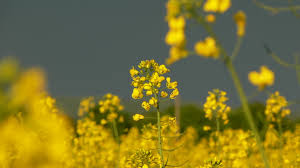Pleurisy
رَّبِّ أَنزِلْنِي مُنزَلًا مُّبَارَكًا وَأَنتَ خَيْرُ الْمُنزِلِينَ
Prophet’s Guidance on treating Pleurisy
روى الترمذى فى "جامعه" من حديث زيد بن أرقمَ، أنَّ النبىَّ صلى الله عليه وسلم، قال: "تَدَاوَوْا مِنْ ذاتِ الجَنْبِ بالقُسْطِ البَحْرى والزَّيْتِ".
Narrated by Tirmizi, that Zaid ibn Arqam reported Prophet Muhammad Sallallaho Alaihe Wasallam saying "Treat Pleurisy with Qust al Bahri & oil (meaning olive oil)".
The doctors divide pleurisy into two types, real and unreal. The first type is an infected growth that appears in the pleura that coats the ribs. The second type causes a similar pain and attacks the pleura as a result of thick, congested flatulence between the peritoneum (smooth transparent membrane that lines the abdominal cavity and part of the pelvic region). The pain caused by the unreal pleurisy is acute while the real pleurisy causes stinging pain.
The author of Qanoon said, sometimes, the flank (of the body), the peritoneum, chest muscles, ribs and surrounding areas suffer from an extremely painful growth called pleurisy. Sometimes, there could be pain in these same areas of the body but not as a result of growth; but of accumulating harmful gases (flatulence), and thus, the people think that it is the first type when in fact it is not.’
He also said, "Know that every type of disease that attacks the side or the flank is called That ul Janb (pleurisy), which is derived from the place where it appears (i.e. Janb, the flank). That is why every type of pain on the side or flank is called That ul Janb regardless of the cause of the ailment. This is the meaning of Hippocrate's statement that those suffering from That ul Janb will benefit from taking a bath. It is said that his statement includes those who suffer from pleurisy, as well as, lung disease (pulmonary) pains that result from a bad constitution, congested conditions without tumors or fever.
Some doctors said that in Greek, the term pleurisy means the warm growth that appears on the side and also the tumors of all internal organs. The tumor of any organ is called pleurisy when it is a warm tumor only. Further, there are five symptoms that accompany the real pleurisy: fever, coughing, stinging pain, hard breathing (dyspnea) and pneumonia.
Sea-costus (Indian costus) is used to treat the unreal pleurisy. When the Indian costus is ground to fine powder, blended with hot oil and then used as an ointment on the affected area, or when the ailing person licks it, it will be a good cure for that ailment. In this case, the costus decomposes the septic substances, strengthens the internal organs and opens the obstructions or clogs. Al-Masi’hi said, ‘Costus is hot and dry and constipates, strengthens the internal organs, dissipates the wind, opens the clogs, helps against pleurisy and dries out excess moistures. Also, costus is good for the brain and might help against the real pleurisy, if a phlegmatic substance had caused it; especially when the illness is weakening. And Allah Knows the best.”
That ul Janb is a dangerous disease, an authentic Hadith related by Umm Salamah Radi Allaho Anha reads,
وفى الحديث الصحيح: عن أُم سلمةَ، أنها قالت: بدأ رسولُ الله صلى الله عليه وسلم بمرضِه فى بيت ميمُونةَ، وكان كلَّما خَفَّ عليه، خرجَ وصلَّى بالناس، وكان كلَّما وَجَد ثِقَلاً، قال: "مُرُوا أبا بكرٍ فليُصَلِّ بالناس"، واشتد شكواه حتى غُمِرَ عليه مِن شدةِ الوجع، فاجتمع عنده نساؤه، وعمُّه العباس، وأُمُّ الفضل بنت الحارث، وأسماءُ بنت عُمَيْس، فتشاوروا فى لدِّهِ، فَلدُّوه وهو مغمورٌ، فلما أفاق قال: "مَن فعل بى هذا ؟ هذا من عمل نساءٍ جِئْنَ من ههُنا"، وأشار بيده إلى أرضِ الحبشةِ، وكانت أُمُّ سلمةَ وأسماءُ لَدَّتاهُ، فقالوا: يا رسولَ الله؛ خشِينَا أن يكون بكَ ذاتُ الجنب. قال: "فَبِمَ لَدَدْتُمُونى" ؟ قالوا: بالعُودِ الهندىِّ، وشىءٍ من وَرْسٍ وقَطِرَاتٍ من زيت. فقال: "ما كان اللهُ لِيَقْذِفَنِى بذلك الدَّاءِ"، ثم قال: "عَزَمْتُ عليكم أنْ لا يَبْقى فى البيتِ أحدٌ إلا لُدَّ إلا عَمِّىَ العَبَّاس
"The final ailment that the Messenger of Allah suffered from started while he was in Maymunah’s house. Whenever the Prophet felt the pain had eased, he would go out and lead the people in prayer. Whenever the pain intensified, he would say, "Order Abu Bakr (Radi Allaho Anh) to lead the people in prayer. The pain kept intensifying until the Prophet Sallallaho Alaihe Wasallam lost consciousness. When the pain intensified, his wives, his uncle Abbas, Umm Al-Fadhl bint Al-Harith and Asma bint Umais Radi Allaho Anhum discussed among each other about giving a medicine to the Prophet and they did just that while he was unconscious. When he woke up, he said, "Who did this to me? It seems that this is the work of some women who came from there, pointing to the direction of Ethiopia with his hand". Umm Salamah and Asma were the ones who had administered the medicine to the Prophet (they were among those who had migrated to Ethiopia), and they said, O Messenger of Allah, we were afraid that you were suffering from That ul Janb". He said, "What medicine did you give me? They said, some Indian costus, Wars and some drops of oil. He said, Allah would never inflict this type of disease on me". He then said, "I order you that every person present in this house take some of the same medicine, except for my uncle Al-Abbas".





















